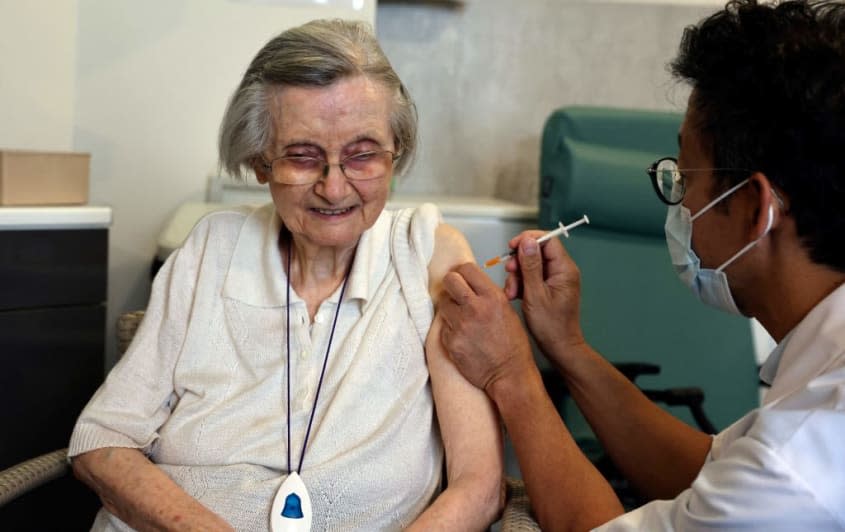The White House, FDA, and CDC are evidently not on the same page on COVID-19 booster shots

The Biden administration has been preparing to roll out COVID-19 booster shots on Sept. 20 for most fully immunized adults, assuming the Food and Drug Administration (FDA) and Centers for Disease Control and Prevention (CDC) agree. The FDA will weigh the evidence for a Pfizer-BioNTech booster shot at a public meeting on Friday, but internal tensions between the FDA, White House, and CDC are already spilling into the open.
Everyone agrees the level of antibodies from the vaccines wanes over time, but there is disagreement over whether approving a third shot is necessary right now, given the other layers of protection from the vaccines and the mildness of most breakthrough infections. Several countries have already approved booster shots for the general population, and Israel is preparing to offer some people a fourth shot.
But in the U.S., the White House COVID-19 task force and FDA "have repeatedly accused CDC of withholding critical data needed to develop the booster shot plan," Politico reports. Some CDC officials view the White House timeline on booster approval as unrealistic.
The "FDA's frustrations with CDC are longstanding and predate the pandemic," Politico notes, but the two agencies are "trying to align" better, especially after the departure of two top FDA vaccine regulators, Marion Gruber and Philip Krause. "The pair announced their retirements this month, in a move that one former official attributed to frustrations with CDC's role in the booster plan."
But Krause and Gruber were among a group of international scientists who argued in British journal The Lancet on Monday that it is premature to offer everyone booster shots.
Universal booster shots may be needed eventually, the Lancet group wrote, but right now other parts of the immune system revved up by the vaccines, like T-cells and memory B cells, are providing really robust protection even as antibody levels decline. They also suggested there could be adverse reactions from repeated vaccinations, and argued that vaccines would be better used to immunize people around the world with no access.
Georgetown University's Larry Gostin said the Lancet paper "throws gasoline on the fire" in the booster shot debate, but the FDA shrugged it off. "We are in the middle of a deliberative process of reviewing Pfizer's booster shot supplemental approval submission," the FDA said, and "as noted in the article, the views of the authors do not represent the views of the agency."

